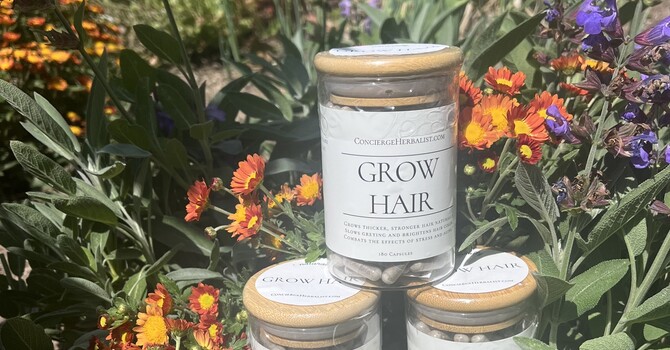
Ask an Herbalist: Can Chinese Herbal Medicine Help with Raynaud's Syndrome?
Raynaud's Syndrome, characterized by episodes of reduced blood flow to the extremities, often leads to cold hands and feet. This condition can cause significant discomfort and, in severe cases, may lead to complications such as sores or ulcers. Chinese herbal medicine offers a unique and holistic approach to treating Raynaud's Syndrome by addressing the underlying imbalances in the body. Chinese herbal medicine can be effective and here I want to delve into three possible pattern diagnoses according to Chinese Medicine, and their corresponding treatment approaches. Single herbs are rarely used alone, and representative formulas are further modified (add or subtract herbs) to account for the individual differences in symptoms and constitution.
Understanding Chinese Herbal Medicine
Chinese herbal medicine, a core component of Traditional Chinese Medicine (TCM), uses formulas, or personalized combinations of herbs, to restore the proper functioning of the body. Unlike Western medicine, which often targets symptoms only, Chinese herbal medicine aims to treat the root causes of illness by considering the body as an interconnected system. This holistic approach can be particularly beneficial for chronic and complex conditions such as Raynaud's Syndrome.
Pattern Diagnoses for Raynaud's Syndrome
In TCM, the diagnosis is made based on identifying specific patterns of imbalance. For Raynaud's Syndrome, there are three common patterns. The most common pattern diagnoses I see in my practice is Qi Stagnation.
- Yang Deficiency
- Blood Stasis
- Qi Stagnation
1. Yang Deficiency
Yang Deficiency is characterized by a lack of warmth and energy in the body. This can lead to symptoms such as cold hands and feet, fatigue, a pale complexion, aversion to cold, frequent urination, lower back pain, and sometimes digestive issues such as loose stools. People with Yang Deficiency often feel a deep-seated cold that doesn't improve with external warmth.
Analogy: Think of Yang energy as the internal furnace of the body. When the furnace is weak or has run out of fuel, it can't generate enough heat to keep the house warm. Similarly, in Yang Deficiency, the body's internal heat is insufficient, so there's not enough energy to circulate blood effectively to the extremities, leading to cold hands and feet.
Single Herbs:
- Rou Gui (Cinnamon Bark): Warms the interior and disperses cold.
- Fu Zi (Aconite Root): Restores Yang and dispels cold.
- Gan Jiang (Dried Ginger): Warms the middle Jiao and rescues devastated Yang.
Representative Formula:
Jin Gui Shen Qi Wan (Kidney Qi Pill from the Golden Cabinet): This formula is commonly used to tonify Kidney Yang and includes herbs such as Fu Zi and Rou Gui to warm and invigorate the body's Yang energy.
2. Blood Stasis
Blood Stasis refers to the impaired circulation of blood, which can cause pain, discoloration, and cold extremities. Other symptoms might include sharp or stabbing pain, purple or dark complexion, varicose veins, chronic headaches, and sometimes dry skin or brittle nails. Blood Stasis can also manifest as fixed, localized pain that worsens at night.
Analogy: Imagine a river that has accumulated debris and blockages over time. These blockages prevent the water from flowing freely downstream. Similarly, in Blood Stasis, the blood becomes stagnant and cannot circulate properly to the extremities, causing cold hands and feet and other related symptoms.
Single Herbs:
- Dan Shen (Salvia Root): Promotes blood circulation and removes blood stasis.
- Chuan Xiong (Szechuan Lovage Rhizome): Invigorates blood and promotes the movement of Qi.
- Hong Hua (Safflower): Invigorates blood and dispels stasis.
Representative Formula:
Xue Fu Zhu Yu Tang (Drive Out Stasis in the Mansion of Blood Decoction): This formula moves blood and dispels stasis, addressing the root cause of cold hands and feet due to Blood Stasis.
3. Qi Stagnation
Description: Qi Stagnation occurs when the body's energy (what TCM calls, Qi) is blocked, leading to symptoms such as stress, irritability, cold extremities, irritability or quick to frustration and/or and a sensation of fullness or tightness in the chest or upper abdomen. Additional symptoms may include frequent sighing, digestive issues like bloating or gas, mood swings, and a tendency to feel anxious or depressed. Individuals with Qi Stagnation often feel a sense of constriction or pressure that is relieved by movement or relaxation techniques.
Analogy: Imagine Qi as a stream of energy flowing through your body like a river. In Qi Stagnation, the energy becomes trapped in the center of the body, creating a blockage similar to a dam that prevents the river from reaching its natural destination—the extremities. This blockage leads to symptoms like cold hands and feet because the energy (or Qi) cannot flow freely to warm these areas. If the Qi isn’t flowing, neither is the Blood, and often Qi and Blood stagnation diagnoses co-occur. With the flexibility of Chinese Herbs, we can treat both at the same time as well.
Single Herbs:
- Xiang Fu (Cyperus Rhizome): Regulates Qi and relieves pain.
- Chen Pi (Aged Tangerine Peel): Regulates Qi and harmonizes digestion.
- Chai Hu (Bupleurum Root): Spreads Liver Qi and relieves tension.
Representative Formula:
Si Ni San (Frigid Extremities Powder): This formula helps to spread Qi, harmonize the Liver and Spleen (stress effects on digestion), and alleviate symptoms of Qi Stagnation, especially those manifesting as cold extremities. The herbs in this formula work to "untrap" the Qi, allowing it to flow smoothly to the hands and feet, like removing the dam to let the river flow freely again.The
Importance of Professional Guidance
Chinese herbal medicine is highly individualized, yet difficult to apply to oneself for significant medical issues without proper training. The effectiveness of treatment depends on a precise diagnosis and a personalized herbal formula tailored to each person's unique pattern of imbalance. Consulting with a licensed and experienced Chinese herbalist is crucial to achieving the best results. A professional herbalist can conduct a thorough assessment, consider any other underlying health issues, and design a customized treatment plan that ensures both safety and efficacy.
In conclusion, Chinese herbal medicine offers a promising approach to treating Raynaud's Syndrome by addressing the root causes of cold hands and feet through a holistic perspective. By identifying the specific pattern of imbalance—whether it be Yang Deficiency, Blood Stasis, or Qi Stagnation—and using targeted herbal formulas with individualized modifications, significant improvement can be achieved. It is best to seek the guidance of an experienced Chinese herbalist to receive a personalized treatment plan tailored to your unique needs.

Kim Drolet
Contact Me



